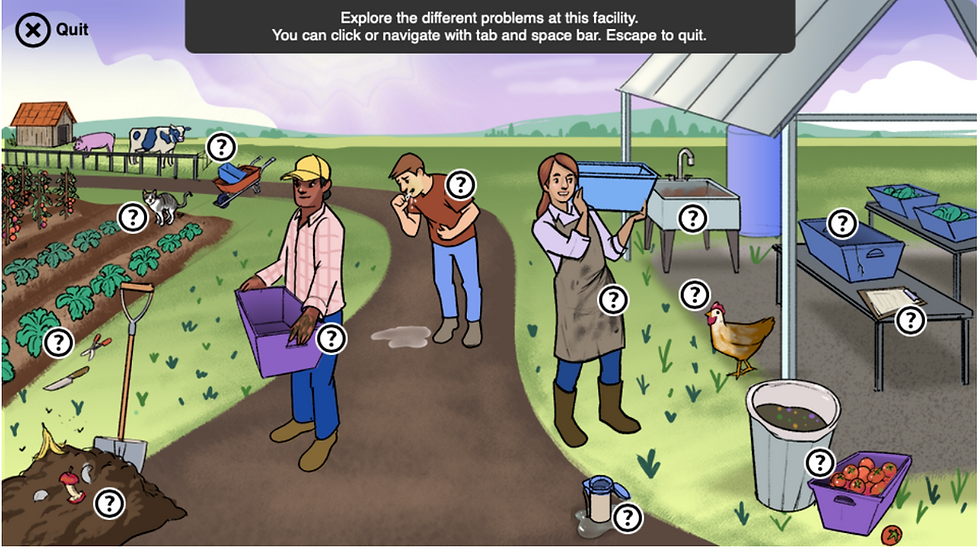Produce TRAINer: Food safety toolkit for produce farm workers
- Pamela Martinez

- Aug 27, 2025
- 2 min read
The Produce TRAINer toolkit is a set of free, online lessons that farm workers can use to learn and practice risk assessment on produce farms. Our IMRE team collaborated with Extension researchers at the University of Maryland Eastern Shore, the University of Maryland Extension, and The Acheson Group (TAG) to create these educational materials to train small and medium-sized farms in food safety procedures to meet federal requirements. The project, "TRAIN: Targeted Resources Addressing Identified Needs in Maryland worker food safety training via on-farm piloting of a mixed media toolkit," was funded by a four-year USDA-NIFA grant awarded to Drs. Shauna Henley and Angela Ferelli.

The ProduceTRAINER Toolkit is available in Spanish and English. It includes lessons on farm risk assessment, identifying common hazards, understanding SOPs (standard operating procedures), and making informed harvest day decisions. The Association for Communication Excellence (ACE) recently awarded the toolkit the 2025 Outstanding Professional Skill Award in Education Technology and Design.

Training associated with the Food Safety Modernization Act Produce Safety Rule (FSMAPSR) targets people who manage or work with produce and/or food-contact surfaces. Specific job-related training is essential alongside general health and hygiene. Workers lacking knowledge about risks and preventive measures might inadvertently introduce foodborne pathogens. Produce TRAINer is being actively shared with these audiences through trainings, local and regional outreach, and online distribution platforms.
Visit ProduceTRAINER.org to access the free training materials:
“TRAIN: Targeted Resources Addressing Identified Needs in Worker Training and Food Safety Culture in Maryland Through the Development and On-Farm Evaluation of a Mixed Media Toolkit” is supported by the Food Safety Outreach Program award no. 2021-70020-35664, from the U.S. Department of Agriculture’s National Institute of Food and Agriculture. Any opinions, findings, conclusions, or recommendations expressed in this publication are those of the author(s) and should not be construed to represent any official USDA or U.S. Government determination or policy.
Written by Pamela Martinez, EdD, Associate Professor and Extension Educational Technology Specialist, Department of Innovative Media Research and Extension


